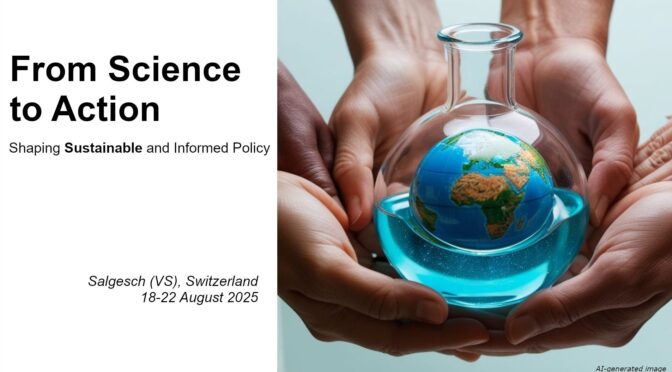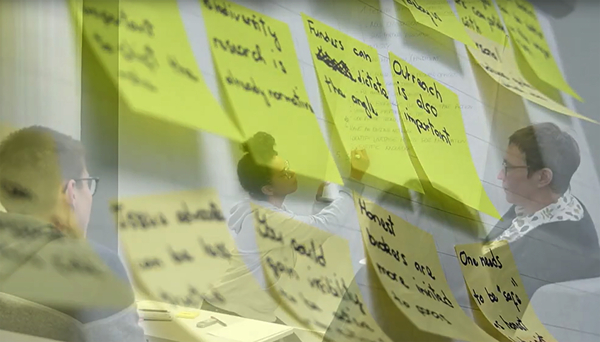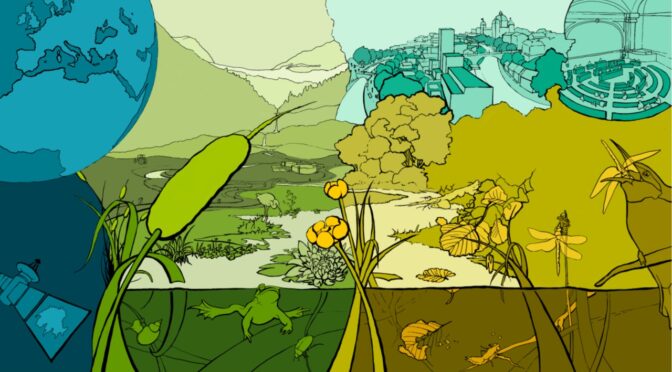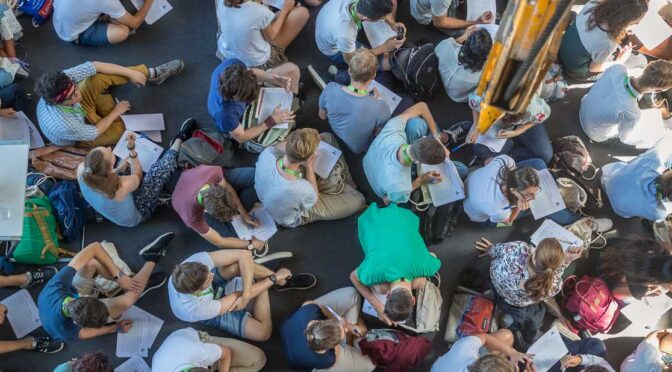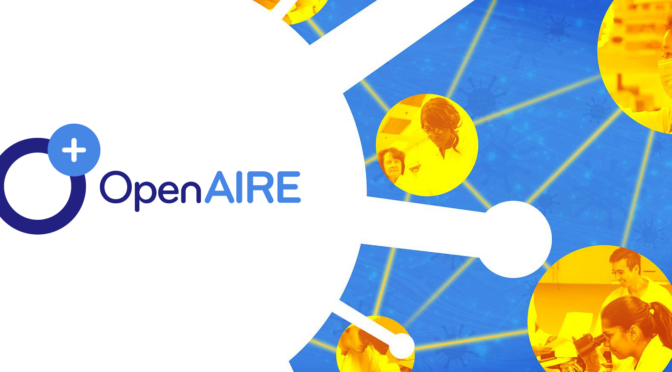The 5-day summer school From Science to Action (2 ECTS) on Science and Policy aims to encourage early-career scientists to drive sustainable change.
Continue reading Science and Policy Summer School – Beyond the LabCategory Archives: Courses
Translating science into action and engage in biodiversity policy-making
In view of biodiversity loss, it is important that early-career researchers get involved not only in science but also contribute to biodiversity policy. The Blue-Green Biodiversity research initiative of Eawag and WSL organised a workshop to facilitate cooperation between science, practice and politics.
Continue reading Translating science into action and engage in biodiversity policy-makingNew Course Offer – Systems Thinking and Design for Social Change and in Policymaking
Are you interested in how systems thinking and design for social change is done and how this can have an impact in policymaking?
If yes, join our upcoming science and policy workshop.
Continue reading New Course Offer – Systems Thinking and Design for Social Change and in PolicymakingNew Course Offer – Capacity Building Workshop on Effective Science-Policy Collaboration in Biodiversity Management
Are you interested in biodiversity management and conservation at the global, national, cantonal, and municipal level? Are you interested in how integrating scientific research results into the decision-making process and engaging at the science and policy interface successfully? If yes, join our upcoming science and policy workshop.
Continue reading New Course Offer – Capacity Building Workshop on Effective Science-Policy Collaboration in Biodiversity ManagementScience and Policy Summer School – Beyond the Lab
Beatenberg, Switzerland, June 25-28, 2024
Are you interested in exploring viable avenues for natural scientists and engineers to engage with society beyond the lab? Then apply for the Beyond the Lab summer school!
Continue reading Science and Policy Summer School – Beyond the LabNew Course Offer – Systems Thinking and Design for Social Change and in Policymaking
Are you interested in how systems thinking and design for social change is done and how this can have an impact in policymaking?
If yes, join our upcoming science and policy workshop.
Continue reading New Course Offer – Systems Thinking and Design for Social Change and in PolicymakingESC Summer School 2023: Energy Technology, Policy and Politics – how to build a net-zero GHG emissions energy system
27. August – 1. September 2023, Monte Verità, Ascona, Switzerland
For more information and registration
This summer school of the Energy Science Center (ESC) is aiming to present an in-depth understanding of the energy sector to early-stage researchers from around the world. The theme of the summer school will be to address the following questions from a technical, economic and policy perspective:
- How does the energy supply system function today and potentially in the future?
- What are the main challenges and opportunities in achieving a net zero greenhouse gas (GHG) emissions energy supply system?
- How can needed investments in the energy system be realized?
- How can policy accelerate the transition to a net zero energy system?
- How can political ambition be increased or implement such accelerating policies?
The ESC is a collaborating competence center of the RESPONSE Doctoral Program .
Getting Your Message Across: How to Make Yourself and Your Research Visible – RESPONSE Mentoring Workshop
March 17, 2023, 9:00 – 17:00, ETH Zurich
In this workshop, participants will learn how to reach a wider audience with your topics and texts and how to prepare and convey your content in an understandable and attractive way in the digital age. They will work on a popular science blog post, learn about graphic tools to support the text in a multimedia and interactive way, learn about the pitfalls and strengths of social media and how to create and manage your own web presence for yourself and your research. Another focus is on visibility: How do I build and manage a community? How can I communicate the importance of my research for politics, economy and society – and actually reach them?
Continue reading Getting Your Message Across: How to Make Yourself and Your Research Visible – RESPONSE Mentoring WorkshopRESPONSE Mentoring Workshop – Getting Your Message Across: How to Make Yourself and Your Research Visible
Response Doctoral Program
In this workshop, participants will learn how to reach a wider audience with your topics and texts and how to prepare and convey your content in an understandable and attractive way in the digital age. They will work on a popular science blog post, learn about graphic tools to support the text in a multimedia and interactive way, learn about the pitfalls and strengths of social media and how to create and manage your own web presence for yourself and your research. Another focus is on visibility: How do I build and manage a community? How can I communicate the importance of my research for politics, economy and society – and actually reach them?
Continue reading RESPONSE Mentoring Workshop – Getting Your Message Across: How to Make Yourself and Your Research VisibleLunch-Event on “OpenAIRE and Open Access – Increase the Uptake and Impact of RESPONSE Research Results”
Response Doctoral Program
The invited lecturer André Hoffmann is a specialist in the Data Services and Open Access office at the Main Library of the University of Zurich. He will provide insight to publishing infrastructures and requirements related to research manuscripts and data. You will get insight how to deal with your EU open data and open access obligations (H2020, RESPONSE). Moreover, you will dip into resources for increasing the visibility of your research and related outputs (e.g. ORCID, OpenAIRE, etc.). This event will be held online from 12 am to 2 pm.
Slides are available here.

